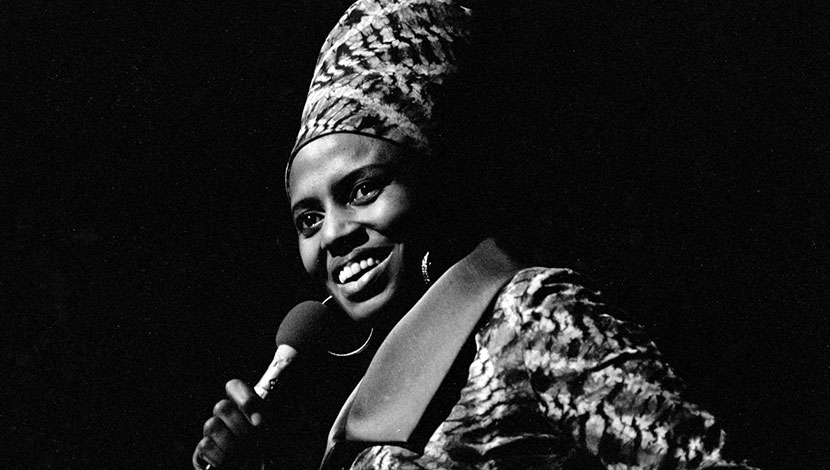Miriam Makeba: The Empress of African Song
In the rich world of African music, few voices shine as brightly as that of Miriam Makeba. Known as the “Empress of African Song,” Makeba’s life and career were marked by incredible talent, resilience, and an unwavering commitment to using her voice as a force for change. Born in apartheid-era South Africa, Makeba’s journey from humble beginnings to international stardom is a testament to the power of music to transcend borders and bring about social and political change. In this article, we will delve into the life and legacy of Miriam Makeba, exploring her early years, her rise to fame, her activism, and the lasting impact she has had on the world of music and human rights.
Early Life and Musical Beginnings
Miriam Makeba, originally named Zenzile Miriam Makeba, was born on March 4, 1932, in the township of Prospect, near Johannesburg, South Africa. Her childhood was far from glamorous, marked by poverty and hardship. Makeba’s early years were spent in a world overshadowed by the oppressive system of apartheid, a legal and social framework that institutionalized racial segregation and discrimination in South Africa.

Despite the challenges she faced, Makeba’s love for music began to blossom at an early age. She was exposed to various African musical traditions through her family and community, and she quickly developed a deep passion for singing and dancing. Her talent did not go unnoticed, and by the time she was a teenager, she was already performing with local groups.
Makeba’s big break came in the early 1950s when she joined the Manhattan Brothers, a popular South African vocal group. This experience provided her with valuable exposure and the opportunity to tour internationally. Her time with the Manhattan Brothers laid the foundation for her future as a solo artist.
Rise to International Fame
Makeba’s ascent to international stardom was meteoric. In 1959, she gained widespread recognition for her role in the documentary film “Come Back, Africa,” which highlighted the struggles of black South Africans under apartheid. Her hauntingly beautiful voice and poignant performances in the film captivated audiences around the world and marked her as a rising star.
Around the same time, Makeba was invited to perform in the United States, where her talent and charisma quickly won over American audiences. She became known for her distinct vocal style, which blended elements of traditional African music with jazz and folk influences. Her hit songs, including “Pata Pata” and “The Click Song,” became international sensations and further solidified her status as a musical icon.
Activism and Exile
Makeba’s success as a musician was inseparable from her commitment to social and political causes. Throughout her career, she used her platform to speak out against apartheid and advocate for the rights of black South Africans. Her activism made her a target of the South African government, and in 1960, her passport was revoked, effectively exiling her from her homeland.
Undeterred by the forced exile, Makeba continued to raise awareness about apartheid on the global stage. She collaborated with other prominent activists, including Harry Belafonte and Nina Simone, to draw attention to the injustices taking place in South Africa. Her music and her words served as a powerful reminder of the human cost of apartheid.
Makeba’s activism extended beyond apartheid. She was a vocal advocate for numerous causes, including civil rights in the United States, women’s rights, and peace. Her song “Malaika” became an anthem for love and hope during turbulent times.
International Success and Legacy
During her exile, Makeba continued to tour and record, earning accolades and respect from musicians and audiences worldwide. She released numerous albums that showcased her versatility as an artist, blending genres and languages to create music that resonated with diverse audiences.
In 1990, with the end of apartheid and the release of Nelson Mandela, Makeba was finally able to return to South Africa after 31 years in exile. Her homecoming was a momentous occasion, and she continued to perform and advocate for social justice in her homeland.
Tragically, Miriam Makeba passed away on November 9, 2008, after collapsing on stage during a concert in Italy. Her death was a loss to the world of music and activism, but her legacy lives on. She left behind a body of work that continues to inspire and uplift, and her impact on the fight against apartheid and the promotion of human rights cannot be overstated.
Conclusion: Miriam Makeba
Miriam Makeba’s life and career are a testament to the power of music to transcend boundaries and effect change. She used her incredible talent to shine a light on the injustices of apartheid, and her unwavering commitment to justice and equality made her a symbol of hope and resilience for people around the world.
As we look back on the remarkable journey of Miriam Makeba, we are reminded that her music was not just about entertainment; it was a call to action, a plea for justice, and a celebration of the indomitable human spirit. The Empress of African Song will forever be remembered for her voice, her passion, and her enduring legacy of using music to make the world a better place. Miriam Makeba’s story is a reminder that even in the face of adversity, the power of the human voice can change the world.
Want To Make Good Afrobeat Music?
We offer top notch online Afrobeat music making services here at Freaksonar. Find our services below :